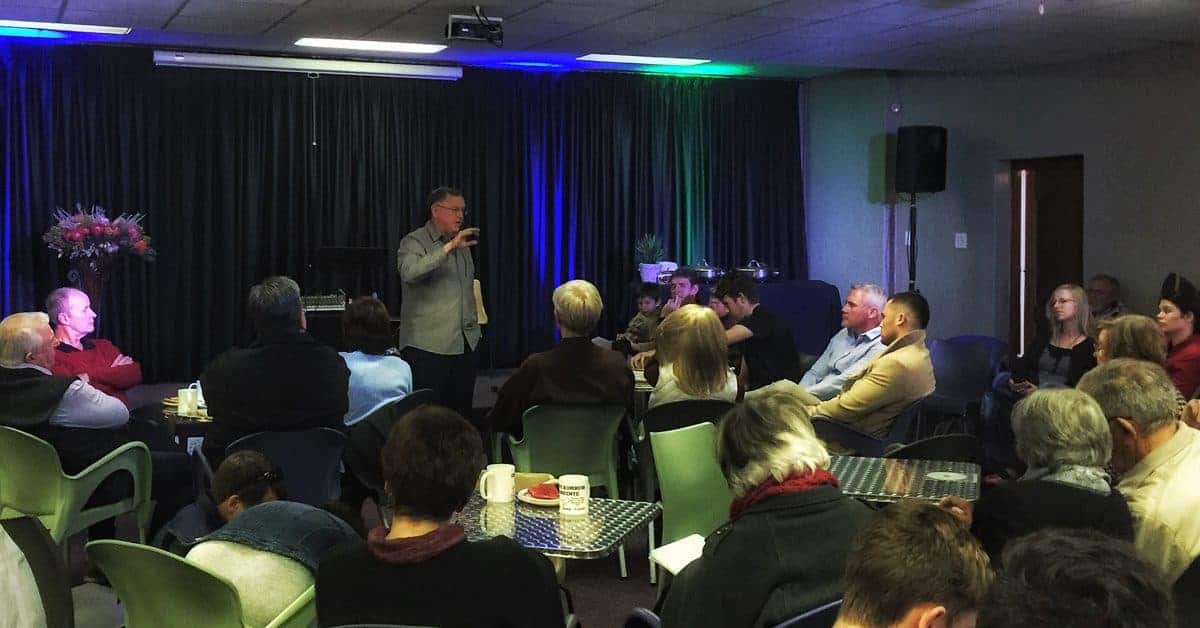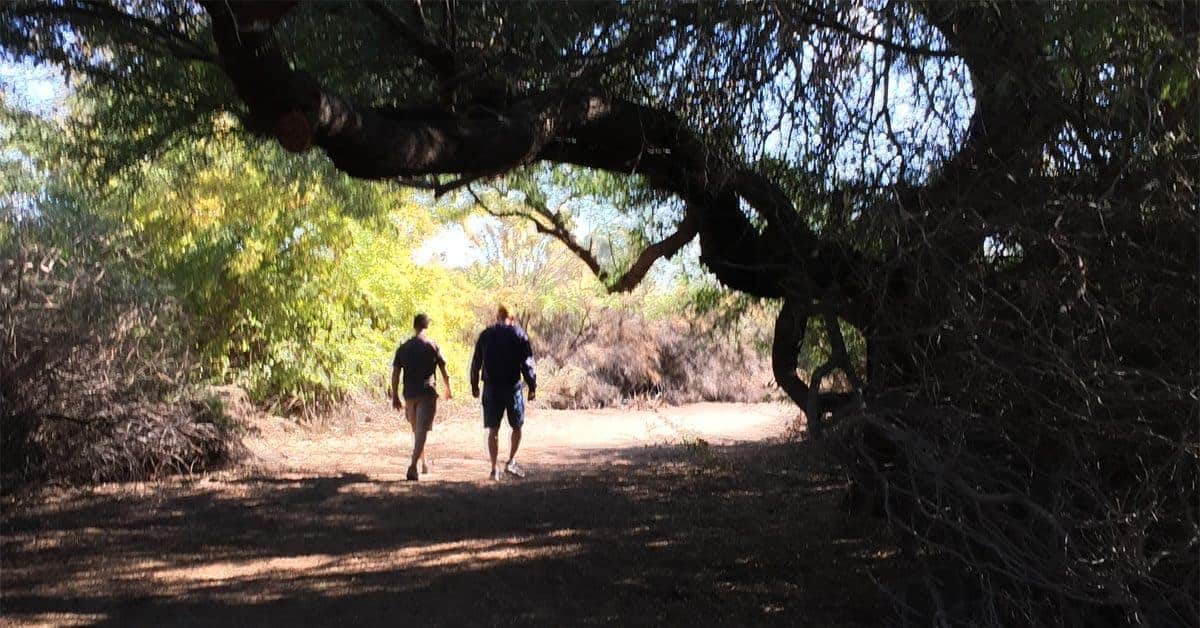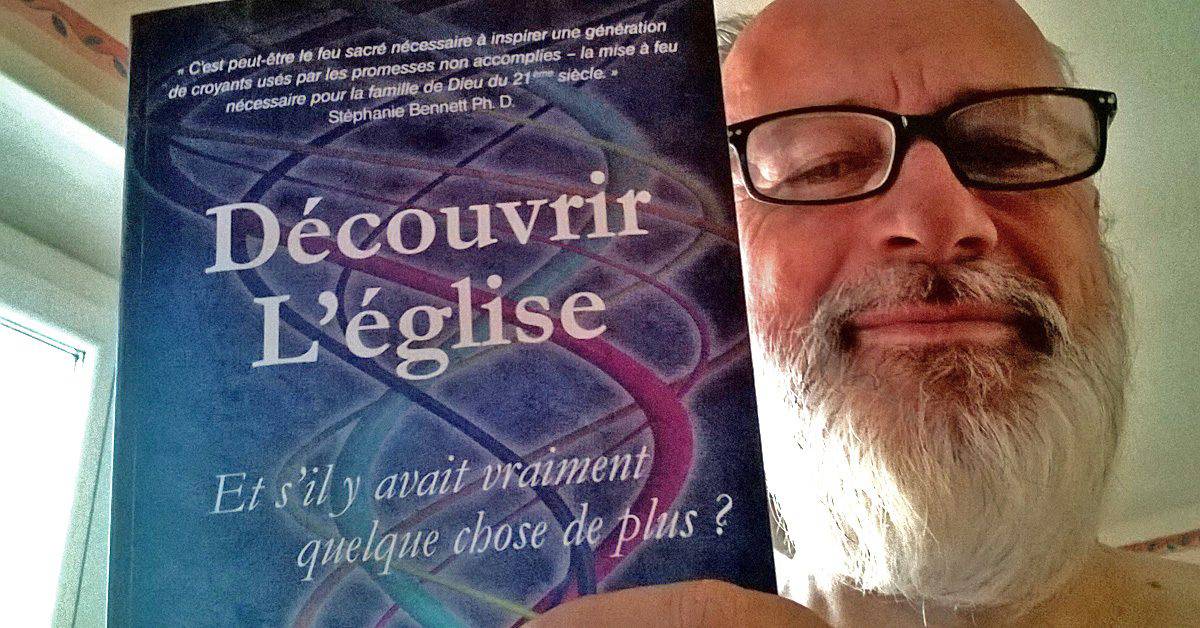By Wayne Jacobsen, a new chapter for the book he’s writing on The Phenomenon of the Dones
(Read a Spanish translation here.)
I believe all those Scriptures about the body of Christ walking together in unity, encouraging each other daily, and sharing God’s wisdom and presence to express a fuller portrait of who he is and how he works in the world. I believe in the power of cooperation and collaboration between those learning to live loved by the Father as a major way he makes himself known to the world around us. I am just not convinced that institutional programs and services are the only way to do that, and unfortunately are often an unwitting detriment to the very Scriptures they seek to fulfill.
The whole of Creation began inside a community of Father, Son, and Spirit celebrating life together and working for a common good. The trajectory of God’s work in that Creation is to invite us to share in that community with him, and thus with each other. I am absolutely committed to sharing life inside the Divine Community as much as I am able—both in my growing communion with the Godhead and in growing friendships with others who are learning to live there as well.
That’s why I see church life not as an obligation, but as a vibrant treasure to be shared with delight. Each of us knows and sees in part, but the fullness of God’s wisdom and nature can only be reflected as those pieces are brought together. While I get to express a facet of God’s wonder, others around me express a different facet. As we walk together in love the fullness of God’s person becomes increasingly clear to us and to the world around us.
Unfortunately the brokenness of our flesh and the politics inside our institutions seems to encourage us to treat each other more as competitors that collaborators. Threatened by the gifts of others and striving to brand our own to build influence and market share we pull apart more than we pull together and in doing so we reflect more the spirit of this age, than we do the Spirit of the Living God.
Having been both a participant and a leader in those institutions, I know that real community is more an illusion in those environments than it is a reality. We thought we could share the life of the church by simply attending the same meetings consistently. And in some ways we did but only in limited ways and for brief seasons. The arc of our programs unwittingly drew people out of the very community we were hoping to build and at times pitted us against each other in our differing hopes for the priorities and activities of the group. Too much of our energy and resource was taken up keeping the program running and those who were supposed to protect us often exploited us for their own job security or to build their personal kingdom.
That’s part of the reason why so many people are leaving the institutional form of church life. It may work for some, but an increasing number of people are looking for something more than being a spectator to whatever has been planned for them on stage. They find themselves thirsting for real community where authenticity is treasured, where encouragement and support come easily and where it fits into our daily lives and doesn’t just happen in a building far away.
Take away the building and the scheduled meetings, however, and some people lose their connection with others. They end up isolated and alone claiming, “they don’t go to church, because they are the church.” But we are not the church alone. We can be a part of his church, but the richness of its treasure is revealed by walking alongside others who stimulate our hearts to live more deeply in God’s love and encouraged to trust him more.
Does such a church exist? Of course she does, and she thrives in every nook and cranny of our world. She’s growing in purity and brilliance and demonstrating to a broken world that the power of love is the greatest force on the universe. To find her we have to stop thinking of her as a “place” and see her as a “people.” Wherever I’ve gone over the past twenty years, I’ve found her and the kind of relationships of self-sacrifice and affection that mark her presence. I’ve been deeply bonded to people from distant countries as well as those around me.
Unfortunately many centuries ago we started using the term “church” to describe institutions and denominations, many of which no longer demonstrate that reality. When we hear the term church we don’t think of people who love each other in an “other worldly” way, but of institutions that act just as every other human institution, often with a lot of political drama and too many broken relationships. We need to look past the marquee and the steeples that promise there’s a church inside and instead look for her in the relationships around us that ooze with Father’s love and affection.
The only place I know to really share the community we see reflected in the Divine community is in ever-deepening friendships with others who are seeking to know him as well. Can that happen around pre-programmed meetings? Of course it can, though it does so almost by accident. Friends don’t grow by sitting in a meeting together weekly but by seeking each other out during the week and finding the conversations that expose our hearts and reap the insights of others.
To experience that kind of life, however, we have to learn to live relationally, and that is less a matter of what meeting we attend as it is how free our heart is to engage others the way God engages us. And this is as true for those who have found at home in a traditional congregation as it is for those who are no longer there. Growing friendships is how this family connects and how it shares its life with the world and that takes some intentionality on our part.
The Internal Realities
What does it mean to live relationally? It means to live with an open, honest, compassionate heart toward people around you, whether they are followers of Christ yet or not. That may sound easy, but it is beyond your capabilities to do it. To love others like that we will first have to learn to live in the Father’s love for us. There are no short cuts here. Our fears and insecurities will make us relationally unavailable to others no matter how hard we will try to act otherwise. It takes time and healing for us to have the relational space to see others and care about them.
I’ve written in many other places about learning to live in that affection, most notably in He Loves Me, so I won’t belabor it here other than to remind you that living loved by him is the first step to sharing that love with others. The more comfortable you get in his love, the freer you’ll be to live relationally open to other people. If you need help learning how, this is a great place for relationship to begin. Ask someone you know who lives more deeply in his love, to walk alongside you and help you learn to as well. A lot of good fellowship begins by seeking the input of others to find a way for you to live in his affection.
As you grow in that love you’ll find your heart being increasingly open in ways that nurture great relationships, rather than however unwittingly pushing people away. So instead of trying to act relational, watch how God’s love sets you increasingly free to engage others in fruitful ways. Here are some of the characteristics that I see in those who are learning to live freely in his love that encourage the kind of friendships that reflect the life of the church:
They value people, not for what you can get from them, but as fellow strugglers through the difficulties of life that provokes your compassion and as a repository of God’s treasure no matter how well-covered it might be under their brokenness. The desire to be alongside others in their joys and struggles will open doors to many relationships and some of those will grow into real friendships.
They live inside their compassion. For whatever reason some people and circumstances grab at our hearts more than others. That doesn’t mean those people are more valuable or more in need, only that God is inviting you into connection with him. You can’t possibly engage everyone around you. When your heart is touched with someone else’s situation, lean into the relationship as much as they will let you.
They live with integrity. I am amazed at the number of people who use God’s love as an excuse to be dishonest and to backstab others for their own gain. There’s a reason why God seeks out those who are genuine and honest and why those people in our lives who demonstrate character and integrity mean the most to us. Growing trust in a relationship results from someone demonstrating trustworthiness and without it people will know we’re just using them to fill our own needs.
They don’t try to fix others. Walking alongside someone means you’re there as a resource for them, when they are ready. When you present yourself as an expert that can fix their problems, you’ll already be shredding the environment in which real relationships grow. Be a soft place for them to land by being gentle and patient. Take an interest in them, and let them take an interest at their pace. Learn to recognize when others are getting defensive and back off so as not to drive them deeper into the hole they are stuck in. Your love and grace will invite them out as God makes them ready.
They learn not to take offense. Most people are so quick to take offense and even assign motives they can’t possibly know to someone else’s actions. They storm off hoping their pity-party will manipulate others to give them the attention they want. The people I know who are most connected to Jesus don’t take offense easily, even at someone else’s brokenness. They can be reviled and come back loving, betrayed and still keep their heart open. When you get hurt, take it to Jesus and find out what unmet need in your own heart responds to people that way. That doesn’t mean you have to let toxic people walk all over you, however. There is room for appropriate boundaries to people who act destructively. This is where you learn to live in your own freedom.
They share the bandwidth. In almost every grouping 20% of the people take up 80% of the bandwidth and that’s true on my social feeds as well. And I don’t think that’s just the difference between extrovert and introvert. Some people think their ideas and thoughts are what’s most important and can’t seem to leave room for other people. When you learn to love you’ll also learn to be a better listener and share the space for others. I used to be compelled to fill blank spaces, afraid that people would think nothing is happening, but in my travels almost always the best questions or observations rises out of the silence, from someone who doesn’t normally speak up easily. The space allows them to process and to risk.
They lose the need to compete. When you feel yourself threatened by someone else’s success, or fighting for a place in the conversation you’ll find yourself being more hurtful than helpful. When you trust God to make all the room for you that he wants, you won’t need to push yourself on others, or try to outdo them in anything other than loving.
Certainly these all represent a huge growth curve in our lives that take years to bear fruit, so don’t try to rush through these all as techniques to learn. They are simply what a free and loving heart does when it is no longer twisted by its own ego or insecurities. When you think beyond groups, studies, and programmed activities you’ll engage people around you in a different way. You’ll find yourself caring about them and their story. You’ll engage them in conversation you both will find enjoyable and nurturing. This is as true for extroverts as introverts, though for introverts it will most likely involve fewer relationships that go far deeper.
Practical Considerations
I know those who’ve left their congregation want to find people quickly to replace what they lost, but he wants to bring people into our lives more organically as we simply learn to live in his love and love the people he puts in front of us each day. The ‘need’ for fellowship can actually be a deterrent to it, not only in seeing the doors God opens, but also in distorting the relationship with need before it simply becomes a friendship. Father knows what you need and how to bring people into our lives. I’m sure there are lots of folks around you to love and take an interest in. Loneliness is one of the great problems of our day and there are no doubt lonely people around you looking for a friend.
That’s what Jesus meant by leaving the ninety-nine for the one. If the people you know aren’t hungry for relationships, find those who are. Often you’ll find these among the weak and marginalized in our social groupings. Those we consider “cool” often have a full load of friends, or don’t know how to have them, content to use people rather than care about them. Think less of who you’d like to befriend and more of those who would be blessed by your friendship.
God’s Spirit is the one that best arranges the connections he wants for us. He knows the people in your area he wants you to walk with and when best to bring you together. I’d encourage you not to look so much for a group, but simply live in the reality of his love each day and love those he puts before you, even unbelievers, without trying to convince them to believe what you believe. Soon you’ll find yourself in some interesting conversations about Jesus and in time surrounded with other folks on this journey. They may already be in some grouping or they may not, but his body grows by ever-expanding relationships that may gather as a group, rather than trying to find a group that believes what you do.
Save space in your life for people. Busyness is often the result of insecurity that crams our lives beyond the margins so we feel productive, but we end up with no time to engage people in relaxed conversation where friendships can grow. If you don’t create space for that, it won’t just happen by chance. And these don’t always have to be extra events. Look for ways to invite people into the routines of your day, like walking the dog, attending a little league game, or a household project. Or better yet, share in theirs.
Make yourself available for new friendships that are not based on religious performance or the manipulations that go with it. They may be unbelievers even, but you can learn to love the people God already has before you, in you neighborhood, at work, or from chance meetings. Engage them in conversation, invite them over or out, and pursue those that seem to connect. The friendships that grow out of these connections will become a rich heritage in your own journey.
Sara and I sit down every week to talk and pray about the people God would want us to connect with that week, and when someone comes to mind, we’re quick to pick up a phone or write an email to see if there’s a need or a similar hunger on the other end. Sometimes we host a dinner party or BBQ and invite people we think would enjoy knowing each other.
If you’re the kind of person who is able to open your life and home and help others make connections in this family, by all means do it. You don’t need to organize a bunch of meetings. Just provide a place for people to connect and friendships to grow. Ninety percent of community happens over a meal, which can be as simple as bringing fast food to a park. As you’re together learn how to help people find their way into real conversations about their journeys and what they are learning. This is how community grows and helps others engage it as well.
Our ever-expanding friendships that revolve around the life and love of Jesus become a rich treasure trove of God’s grace and wisdom. We can listen to God together and recognize more easily what he is saying or asking of us. We can support each other and collaborate together in sharing as they do what he asks. And, we can pool our resources to help each other in time of need or help others around the world.
Being relational takes far more intentionality than organizing group activities and meetings, or attending them. The rewards, however, are far richer. As your friendships grow with others you will find yourself in time surrounded by an ever-widening set of relationships that not only opens the door wider for you to discover more about God’s wisdom and nature, but it also allows us to cooperate together however he might ask us to share his glory in the world around us.
That’s where the church becomes visible—not because we have a building on the corner, but because we love in a way that others want to embrace.
_________
This is part 17 in a series on The Phenomenon of the Dones by Wayne Jacobsen who is the author of Finding Church and host of a podcast at TheGodJourney.com. You can read the first half here and subsequent parts below. It will eventually be made into a book for people to read more easily.
If you’d like to subscribe to this blog and receive future posts by email you can sign up at the top of the right-hand column of our home page.














